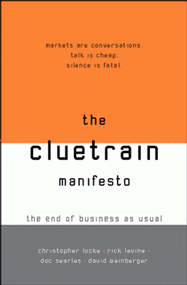I just read about the Android App store, and while I found it very compelling, there is no need for me to be yet another blogger covering this topic. I was inspired though, and felt compelled to think about the ramifications of the proliferation of apps and what it means for our media ecosystem. I then put my David Armano hat on (okay, so I use stock .ppt graphics...so what!) and attempted to convey how the new media landscape has shifted in light of the new service economy.
In today's media lanscape it is not enough to provide good content (after all, we are the content much of the time) and secure good distribution (it is largely free online). In today's media landscape, it is just as important how content is received, and what value added services can bring to the experience of consumption.
Here is what I see the shift looking like:
 The Old Media Paradigm
The Old Media Paradigm
 The New Media Paradigm
The New Media Paradigm
Armano, if you are picking up what I am putting down and can do better with the imagery- I owe you a beer :)
In today's media lanscape it is not enough to provide good content (after all, we are the content much of the time) and secure good distribution (it is largely free online). In today's media landscape, it is just as important how content is received, and what value added services can bring to the experience of consumption.
Here is what I see the shift looking like:
 The Old Media Paradigm
The Old Media Paradigm The New Media Paradigm
The New Media ParadigmArmano, if you are picking up what I am putting down and can do better with the imagery- I owe you a beer :)









 crayon, Greg's agency has put together a very cool program with
crayon, Greg's agency has put together a very cool program with  Finally, I am thinking of having a Lively meetup during Podcamp. Everyone is try to make sense of what
Finally, I am thinking of having a Lively meetup during Podcamp. Everyone is try to make sense of what 